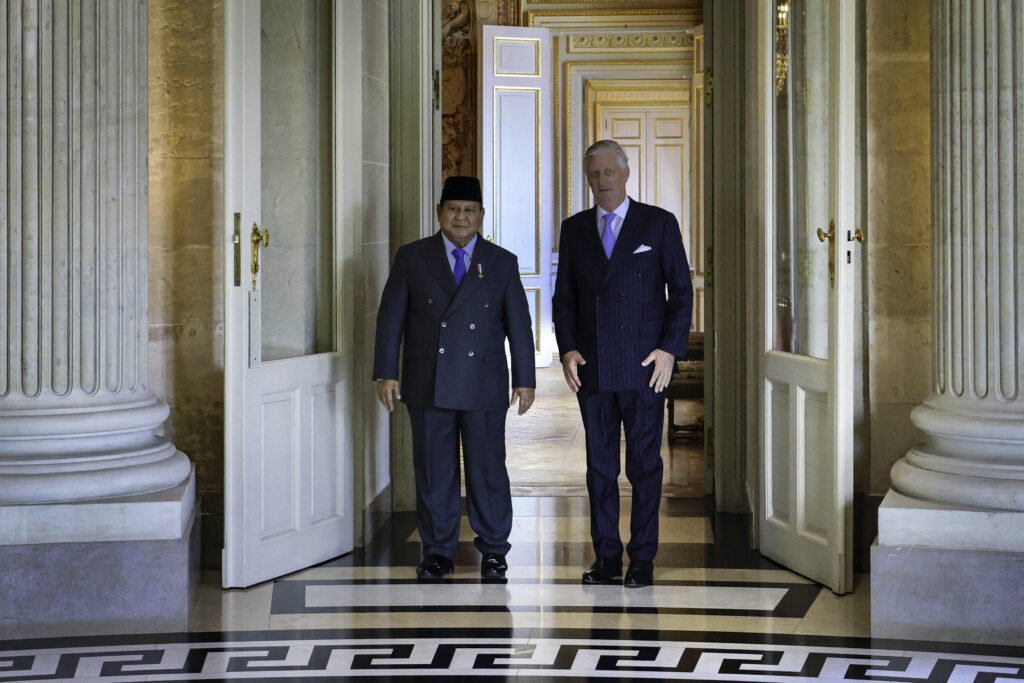BI: Indonesia Records Balance of Payment Surplus in Q4 2018
 Bank Indonesia on Friday (8/2) reported that Indonesia had a surplus of Balance of Payments (BOP) in the fourth quarter of 2018 that supported the resilience of the external sector.
Bank Indonesia on Friday (8/2) reported that Indonesia had a surplus of Balance of Payments (BOP) in the fourth quarter of 2018 that supported the resilience of the external sector.
“After experiencing a deficit in the previous quarter, the balance of payments in the fourth quarter of 2018 recorded a surplus of US$ 5.4 billion, supported by an increase in capital and financial account surplus,” Executive Director of BI Communication Department Agusman said in a press release.
Agusman added that the position of foreign exchange reserves at the end of December 2018 increased to US$ 120.7 billion, equivalent to 6.5 months of import financing and Government foreign debt,and was above the international adequacy standard which is approximately 3 months of import financing. Capital and financial account surplus in the fourth quarter of 2018 also increased significantly, a reflection of high confidence of investor in domestic economy outlook.
“The capital and financial account surplus was recorded at US$ 15.7 billion, a significant increase compared to the previous quarter’s surplus with US$ 3.9 billion,” Agusman said.
The increase, according to him, was mainly supported by the improvement in portfolio investment performance, in line with the increase of foreign fund inflow to domestic financial assets.
“The increase in surplus is also supported by the issuance of global bonds by the Government and corporations. In addition, optimism about Indonesia’s economic prospects has encouraged domestic businesses to withdraw deposits at foreign banks to meet their business needs so that other investments are recorded as surplus,”he further said.
Regarding the current account deficit in the fourth quarter of 2018, the increase is in line with strong domestic demand. The current account deficit in the fourth quarter of 2018 was recorded at US$ 9.1 billion (3.57% of GDP), higher than the deficit in the previous quarter with US$ 8.6 billion (3.28% of GDP).
Agusman went on to say that the current account deficit increase was influenced by the decline of non-oil and gas goods trade balance due to high imports, strong domestic demand and limited export performance, while primary income balance and service balance have reduced the increase of the deficit.
“The improvement in the primary income balance was mainly supported by lower Government interest payments, and an increase in travel services, supported by the Asian Para Games in Jakarta and the IMF-World Bank Annual Meeting in Bali,” Agusman said, adding that overall balance of payments in 2018 shows the resilience of the external sector that remains under control.
“The current account deficit is still within safe limits, amounting to US$ 31.1 billion or 2.98% of GDP,” he stated, adding that the deficit was mainly influenced by high non-oil and gas imports, especially raw materials and capital goods, as a result of strong domestic economic activity and the limited performance of non-oil and gas exports.
The increase in the deficit was also driven by an increase in oil imports, in line with the increase in average world oil prices and domestic fuel consumption. On the other hand, amid uncertainty on high global financial markets, capital and financial transactions recorded a significant surplus of US$ 25.2 billion, mainly supported by long-term capital inflows.
“With these conditions, the 2018 balance of payments has a deficit of US$ 7.1 billion,” Agusman said.
Bank Indonesia, according to Agusman, continued to improve coordination with the Government to strengthen the resilience of the external sector, including in controlling the current account deficit in 2019 towards the range of 2.5% of GDP.
“Bank Indonesia continues to pay attention to global developments that can affect the prospect of the balance of payments, particularly high uncertainty in global financial markets, as well as the volume of world trade and global commodity prices which tend to decline,” he said, adding that Bank Indonesia will improve policy mix to strengthen economic stability and will improve policy coordination with the Government in encouraging the continuation of structural reforms. (Depkom BI/ES)
Translated by: Ridwan Ibadurrohman
Edited by: Mia Medyana








